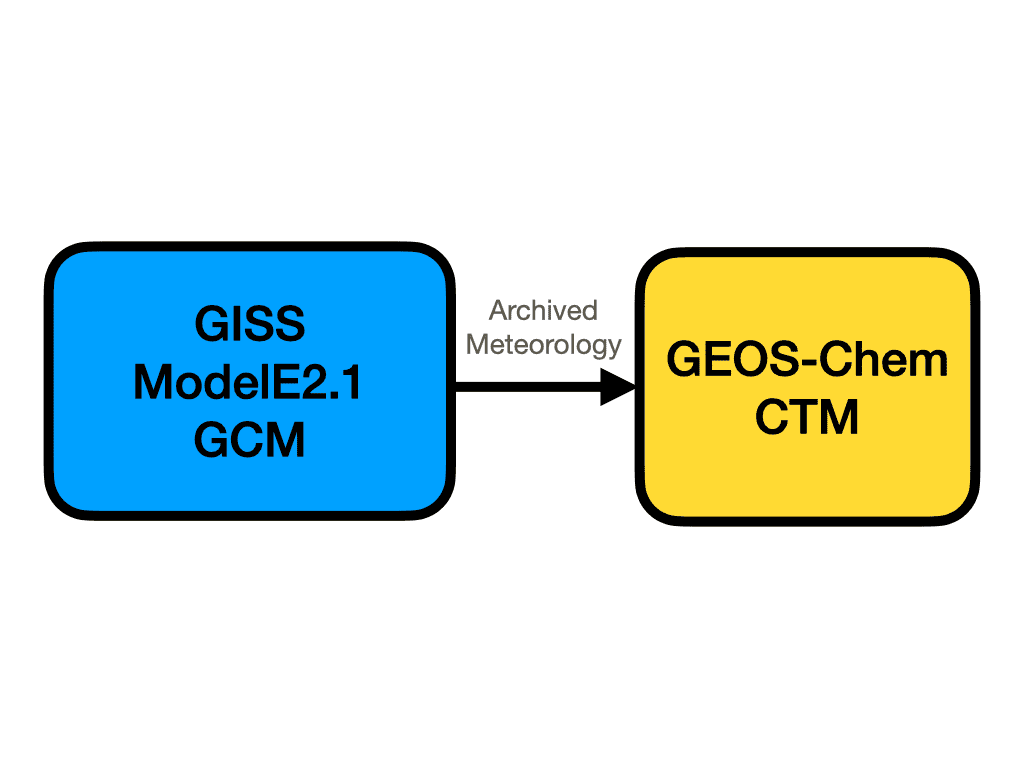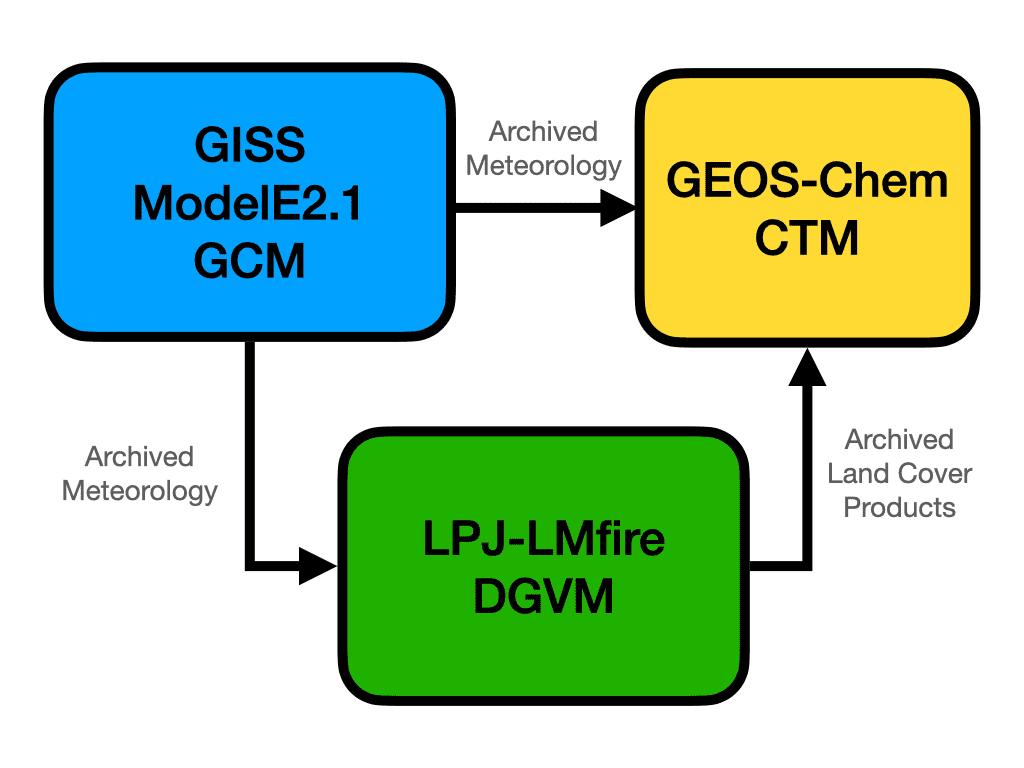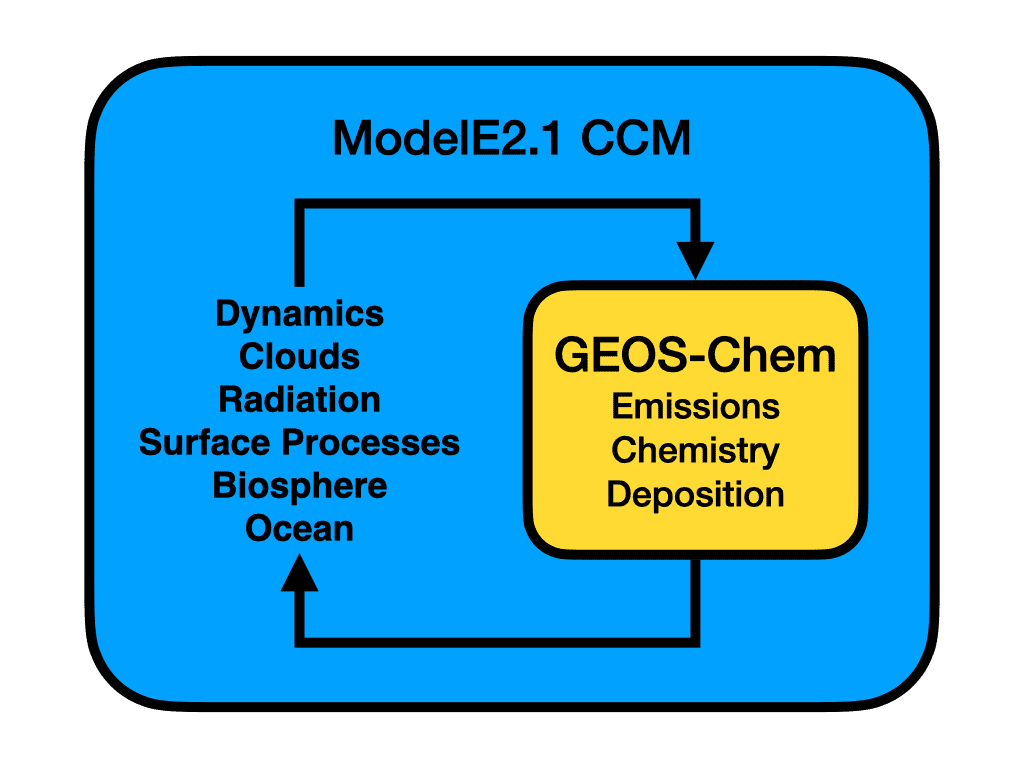GISS-GC is an NSF and NASA-funded project that couples the NASA Goddard Institute for Spaces Studies (GISS) ModelE general circulation model with the GEOS-Chem chemical transport model. The goal of GISS-GC is to facilitate the study of climate-chemistry interactions across Earth's history and into its future.
There are three configurations of GISS-GC in development:




